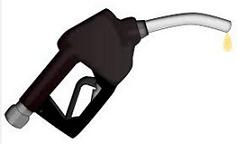 A fuel is a material that, due to its properties, burns easily . The concept usually refers to the substance that, when oxidized when ignited, gives off heat and releases energy that can be used.
A fuel is a material that, due to its properties, burns easily . The concept usually refers to the substance that, when oxidized when ignited, gives off heat and releases energy that can be used.
Fuels, in this way, generate mechanical energy or thermal energy . Gasoline (also known as naphtha ), diesel oil , natural gas , wood and coal are some of the most used fuels worldwide.
All fuels have a certain calorific value : the amount of energy (heat) they release per unit of volume or mass when the oxidation reaction occurs. This reaction begins when the fuel reaches its ignition temperature .
Fossil fuels come from biomass whose origin dates back several million years. Oil , coal and natural gas are examples of this type of fuel, which are not renewable (once they are used up, they disappear, since they cannot be generated at the same rate as their consumption).
It is important to keep in mind that, as fuels oxidize and release energy, they leave behind different residues . Among them is carbon dioxide , a polluting substance that contributes to the greenhouse effect .
Most cars, for example, need gasoline (naphtha) to run. This fuel consists of a combination of hydrocarbons that come from petroleum. When the gasoline in the engine 's combustion chamber burns, the chemical energy of the fuel is converted into the mechanical energy that allows the vehicle to move.
Bio Bean and coffee as fuel
 Since the end of 2017, a young British company called Bio Bean began converting large quantities of ground coffee waste into biofuel capable of supplying the almost ten thousand buses in the city of London. It is worth mentioning that London's bus network is among the busiest on the planet, making the achievement even more impressive and, why not, beneficial for the economy in general.
Since the end of 2017, a young British company called Bio Bean began converting large quantities of ground coffee waste into biofuel capable of supplying the almost ten thousand buses in the city of London. It is worth mentioning that London's bus network is among the busiest on the planet, making the achievement even more impressive and, why not, beneficial for the economy in general.
Every year, approximately two hundred thousand tons of ground coffee waste are discarded in the United Kingdom, which after decomposition in landfills generates a considerable emission of methane gas that is almost thirty times the harmfulness of carbon dioxide.
Arthur Day, founder of Bio Bean, relied on the high caloric content of ground coffee to carry out research on its potential as fuel, both for private and industrial automobiles. After receiving permission from the authorities, the company embarked on the production of six thousand liters of coffee oil.
Bio Bean had the support of many factories and coffee shops throughout the United Kingdom from the beginning, and this tipped the balance in favor of the project in a decisive way. Coffee oil must be mixed with certain fats to obtain a 20% biocomponent to which mineral diesel must then be added to obtain biofuel B20 .
Without a doubt, the year 2017 marked a milestone in the history of the fight against environmental pollution , since thanks to this revolutionary fuel, carbon dioxide emissions began to be reduced to significant levels. Two of the companies that collaborated with Bio Bean are Argent Energy and Shell .
Before this undertaking, others with similar purposes had taken place, which were also tested on the almost ten thousand vehicles of the London bus network ; for example, fuels made from meat waste and oil. In the words of Arthur Kay, this project "is a good example of what we can achieve when we start to see waste as unexplored resources."
